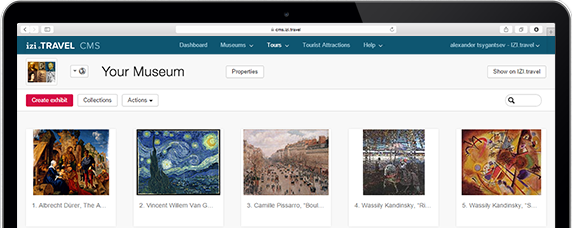A Dangerous Infiltrator (Moscow)
Update Required To play the media you will need to either update your browser to a recent version or update your Flash plugin.
While in the Kremlin, Napoleon had no idea that only the vigilance of his sentries saved him from encountering the man bent on killing the French emperor ...
Alexander Samoylovich Figner, a famous partisan of 1812, quite deliberately put his life "on a razor's edge." The tales that his contemporaries told about him seem the stuff of legends. Immediately after the Russian army left Moscow, Figner, "disguised as a Russian peasant with cropped hair and beard, appeared in Moscow and set fire to a large baker's shop and something else; he then made his way to the Kremlin, chopped up some wood and, disguised as a stoker, attempted to enter Napoleon’s quarters and shoot him dead with a small pistol...But Figner failed, because no one had access to the Kremlin; his guards, the Grenadiers, drove the wood-laden man from the Kremlin, after which he vowed that he would capture Napoleon and, after returning to his gang, he took prisoner as many of the French as he possibly could..."
During his short life, Figner commanded a flying column. He fell in an unequal fight in the autumn of 1813.
His wife, Olga Figner (née Bibikova), faithfully maintained the memory of her husband. At one time, her father, the governor of Pskov, was being investigated for embezzlement. Society instantly shunned the family of the disgraced governor. Figner regarded this as vile and, in defiance, proposed to Olga Mikhailovna. Figner's mother sharply opposed the marriage, so Alexander Samoilovich took his bride to Petersburg, and there they were wed. Soon Figner went off to war, destined never to return...
The Pskov State United Historical Architectural and Art Museum Reserve holds a silver chalice and cross – the contribution of Olga in honor of her husband's memory. The museum also honors the memory of many individuals from Pskov who participated in the Patriotic War of 1812. Commander-in-Chief of the Imperial Russian Army, Mikhail Golenischev-Kutuzov, brothers and generals Nicholas and Mikhail Borozdin, infantry general Pyotr Konovnitsyn, Pskov governor Prince Pyotr Shakhovskoy, as well Lieutenant General Pyotr Wittgenstein, whose corps defended the road to Pskov and St. Petersburg in 1812. Of special value to Pskovians are the memoribalia kept in the museum of a participant in the Battle of Borodino – Lieutenant Nikolai Vokhin. Visit the website:
www.museum.pskov.ru
Alexander Samoylovich Figner, a famous partisan of 1812, quite deliberately put his life "on a razor's edge." The tales that his contemporaries told about him seem the stuff of legends. Immediately after the Russian army left Moscow, Figner, "disguised as a Russian peasant with cropped hair and beard, appeared in Moscow and set fire to a large baker's shop and something else; he then made his way to the Kremlin, chopped up some wood and, disguised as a stoker, attempted to enter Napoleon’s quarters and shoot him dead with a small pistol...But Figner failed, because no one had access to the Kremlin; his guards, the Grenadiers, drove the wood-laden man from the Kremlin, after which he vowed that he would capture Napoleon and, after returning to his gang, he took prisoner as many of the French as he possibly could..."
During his short life, Figner commanded a flying column. He fell in an unequal fight in the autumn of 1813.
His wife, Olga Figner (née Bibikova), faithfully maintained the memory of her husband. At one time, her father, the governor of Pskov, was being investigated for embezzlement. Society instantly shunned the family of the disgraced governor. Figner regarded this as vile and, in defiance, proposed to Olga Mikhailovna. Figner's mother sharply opposed the marriage, so Alexander Samoilovich took his bride to Petersburg, and there they were wed. Soon Figner went off to war, destined never to return...
The Pskov State United Historical Architectural and Art Museum Reserve holds a silver chalice and cross – the contribution of Olga in honor of her husband's memory. The museum also honors the memory of many individuals from Pskov who participated in the Patriotic War of 1812. Commander-in-Chief of the Imperial Russian Army, Mikhail Golenischev-Kutuzov, brothers and generals Nicholas and Mikhail Borozdin, infantry general Pyotr Konovnitsyn, Pskov governor Prince Pyotr Shakhovskoy, as well Lieutenant General Pyotr Wittgenstein, whose corps defended the road to Pskov and St. Petersburg in 1812. Of special value to Pskovians are the memoribalia kept in the museum of a participant in the Battle of Borodino – Lieutenant Nikolai Vokhin. Visit the website:
www.museum.pskov.ru
Download the free izi.TRAVEL app
Create your own audio tours!
Use of the system and the mobile guide app is free


